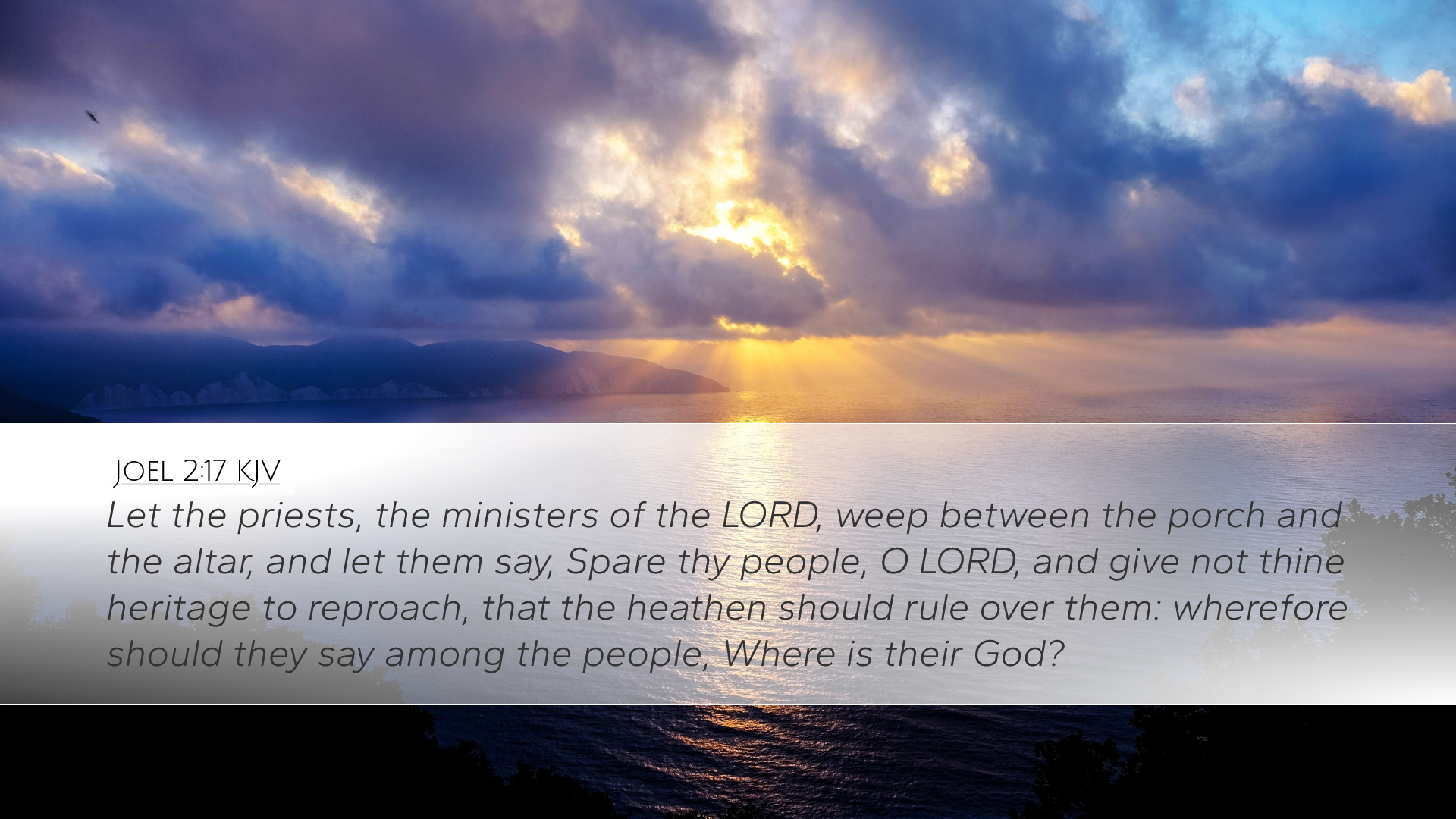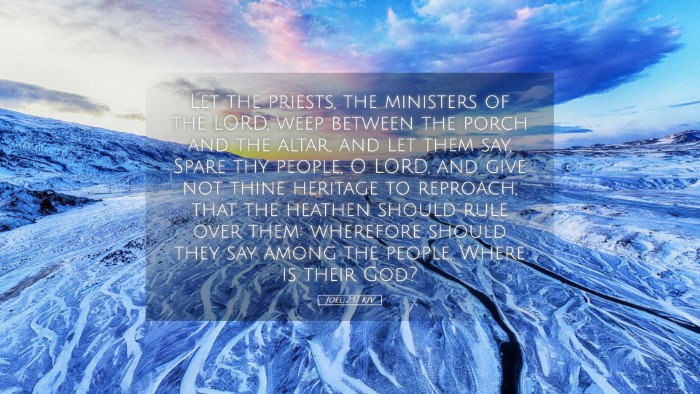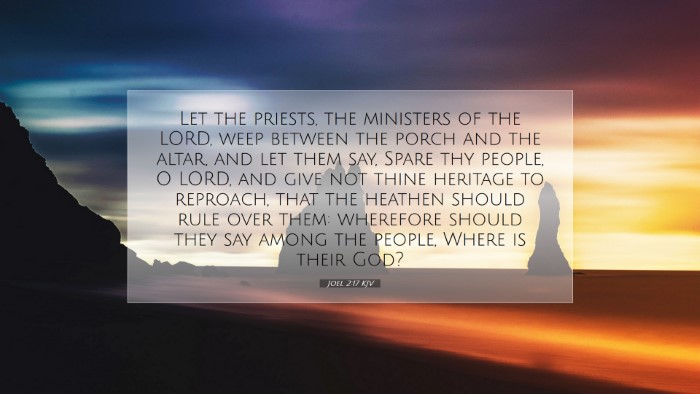Bible Commentary on Joel 2:17
Text of the Verse: "Let the priests, the ministers of the Lord, weep between the porch and the altar, and let them say, Spare thy people, O Lord, and give not thine heritage to reproach, that the heathen should rule over them: wherefore should they say among the people, Where is their God?" (Joel 2:17, KJV)
This verse encapsulates a profound call to repentance and intercession, deeply resonating with themes of divine mercy, communal grief, and the fervent desire for restoration among God's people.
Contextual Overview
Joel, a prophet during a time of national calamity, addresses the people of Judah amidst a great locust plague. This disaster is interpreted as both a literal plague and a symbol of impending judgment from God. In response to this crisis, Joel emphasizes the need for sincere repentance and an earnest call to return to God.
The Role of the Priests
Joel's exhortation begins with the priests, designated as the spiritual leaders of the community:
- Intercessory Role: The priests are called to intercede on behalf of the people. Their tears symbolize genuine sorrow for the sins and condition of the nation.
- Position of Authority: Their place between the porch and the altar signifies a transitional space where they stand before God, beseeching His mercy while representing the people.
Matthew Henry comments on this role, highlighting the crucial nature of the priestly function in the community's relationship with God. He elaborates that the priests are not just performing rituals but engaging in heartfelt pleas for mercy.
The Content of Their Plea
The prayer encompasses a fervent cry for God's mercy:
- "Spare thy people, O Lord": This line is monumental in revealing God's character as a God of mercy. The priests appeal to God's compassion, acknowledging the deservedness of judgment while pleading for lenience.
- "Give not thine heritage to reproach": Here, the heritage refers to Israel, God's chosen people. The priests recognize the fragility of their standing and the potential disgrace that could befall them due to their unfaithfulness.
Albert Barnes underlines that the priest's plea serves as a reminder of the intimate relationship between God and His people, emphasizing the need for divine intervention at times of distress.
The Concern for God's Reputation
Significantly, there is a concern regarding the reputation of God among the nations:
- "Wherefore should they say among the people, Where is their God?": This contemplation reveals the impact of Israel's sinfulness on God's name among the nations, where God's fidelity and power are called into question.
Adam Clarke emphasizes this point by stating that the question posed by the heathen reflects the seriousness of living as a people set apart for God. The implications of judgment extend beyond personal consequences, affecting God's glory and attributes in the eyes of the world.
Spiritual Implications for Today's Audience
The themes present in Joel 2:17 resonate deeply within contemporary contexts:
- Call to Repentance: Modern believers can draw from this and understand the essential nature of repentance in the life of faith, realizing that corporate and personal sins can lead to widespread consequences.
- Intercessory Prayer: The priesthood of all believers encourages today's Christians to act as intercessors, standing in prayer for the church and the world, seeking God's mercy and intervention.
- Holistic Witness of the Church: Just as Israel's reputation was tied to God's name, so too is the church's witness in the world. Apathy and sin can hinder the perception of God's goodness and truth.
Conclusion
In conclusion, Joel 2:17 serves as both a historical plea and a timeless reminder of the importance of sincere repentance, the power of intercession, and the far-reaching implications of living in covenant relationship with God. As we reflect on this text, may pastors, students, theologians, and scholars find renewed motivation to uphold God’s glory and extend His grace into a hurting world.


